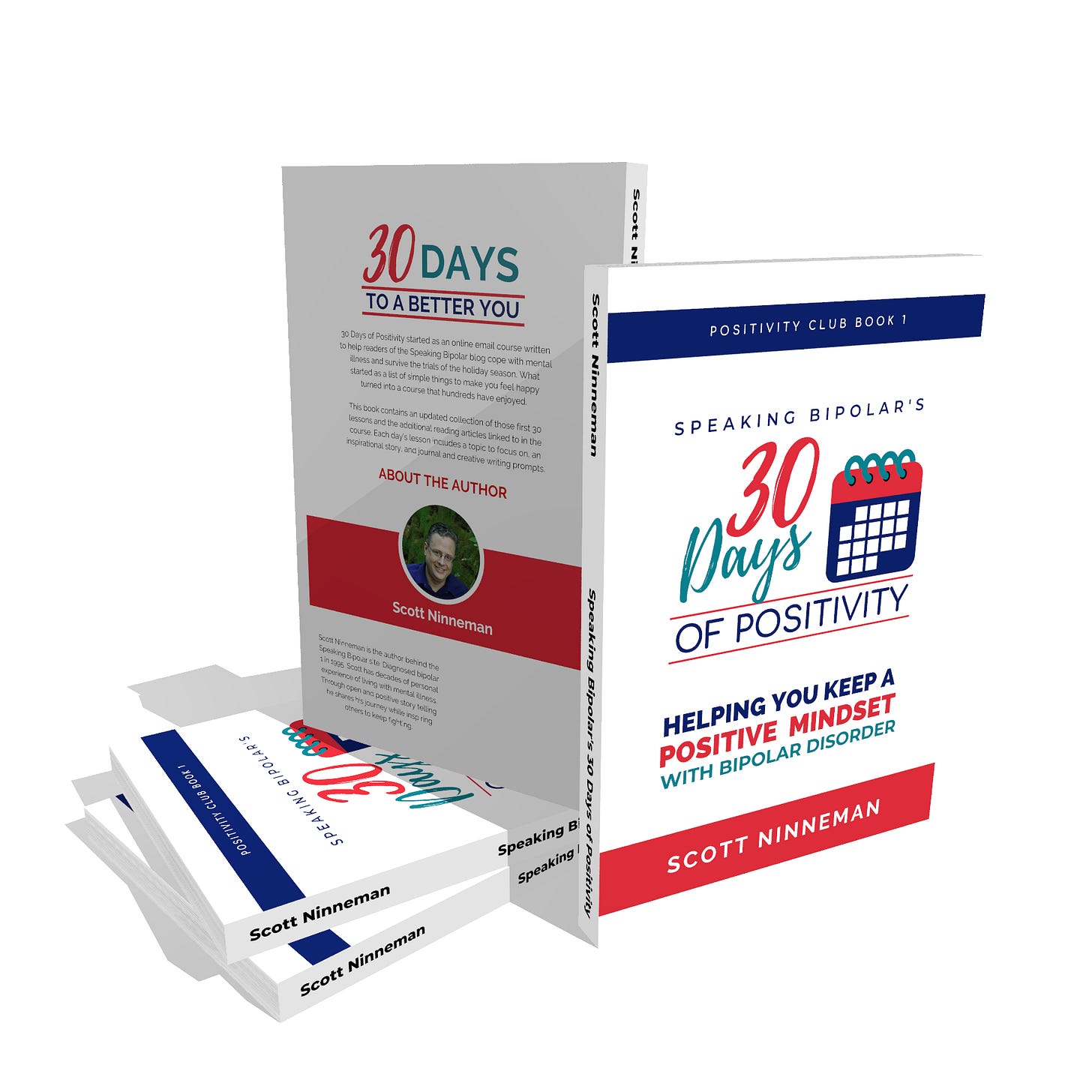Hi there!
Author’s Note: I’m trying an experiment this week. Today, you are receiving the content I would normally publish on Wednesday. Tuesday through Friday, you will receive a shorter newsletter. Each day’s message will build on the day before. Friday’s newsletter will also include a poll for you to rate this experiment. Thank you for sharing in this test run.
Imposter syndrome is real. I know because it plagues my mind every day. Can you relate?
Imposter syndrome is unusually strong with writers, and especially intense for people with bipolar disorder. Having both in my life, it’s no wonder I struggle.
What is imposter syndrome? According to WebMD:
“Imposter syndrome is when you doubt your own skills and successes. You feel you're not as talented or worthy as others believe, and you're scared that one day, people will realize that.” - Source
In simple terms, imposter syndrome is the belief that you’re not what you’re pretending to be. It’s the nagging feeling that you have a secret you’re keeping from the world: you are a fraud.
This false belief kept me stuck for years.
Scott Ninneman also publishes the free All Things Bipolar Newsletter (off Substack). The Sunday email features the newest content about bipolar life.
Imposter syndrome held me back
Imposter syndrome is the reason I waited so long to publish a book. It’s also the reason I rarely discuss my book with the people in my life.
Imposter syndrome is also why I waited so long to open up about my mental health struggles. I felt that if I told anyone about my bipolar diagnosis, they wouldn’t believe me. I wondered, “Do I really have a disorder or am I making it all up in my head?”
Even worse, I doubted I could help anyone, so I much too long to tell my story, and even longer to start a newsletter.
Rationally, I know imposter syndrome is nothing to worry about. The reasonable part of my mind knows it’s a lie my brain is trying to sell me. If you want to help someone, you just need to be one step ahead of where they are. Everyone has experience to share.
For example, if you are baking a cake and you don’t know what to do next, I can help if I tell you to add two eggs to the batter. Even if I’m baking my first cake, if I already completed the step, I can tell you what to do.
I’m not a fraud because I know what step is next. Knowing this, I challenged imposter syndrome.
Then I fought back
Imposter syndrome in mental illness often shows up as the belief that you’re failing at everything.
Let’s think about that for a second. Can anyone truly be a failure at everything? Of course not. Yet, bipolar disorder will make you feel that way.
The harmful messaging in my bipolar mind kept me afraid of sharing my experiences. I feared sharing my past for the fear it might have a negative impact on a reader. I doubted I had the skill set to help anyone live a happier life. Even worse, I knew people online would see I was a fraud and call me out for it.
It’s possible readers now think I’ve got it all together. After all, I have been writing online for six years. You may even imagine I’ve conquered bipolar disorder and have few problems in my daily life. I wish all of that were true.
Bipolar disorder is a daily struggle, and that’s true for me, just like anyone else. I’m sure it will be for the rest of my life.
I also have generalized anxiety disorder which peppers my life with social anxiety, sleepless nights, and panic attacks. Many days, I feel like I’m failing at everything. (See? There’s that lie again.)
My life is littered with failed attempts at success. The life I live today is nowhere near where I hoped to be, but I know I’m not a failure.
The thing that matters is to keep trying. My value comes in doing my best to help others along the way. I may not have it all together, but I’m also not done yet. Neither are you.
It’s okay to be messy
If you’re struggling because you feel you don’t have it all together, welcome to the club. It’s part of life with mental illness. But you know what? Even people with excellent mental health frequently feel the same way. Most everyone feels at least a twinge of imposter syndrome.
It’s okay if your life is messy. It’s okay if you feel like a fraud sometimes. Don’t let either feeling rob you of what you can be—what you already are.
Never give up. No matter how many times you fall down, choose to stand up again. Never stop trying to be better.
If you’re fighting imposter syndrome, take some time today to confront it. Acknowledge the feeling, but then explore if there’s any truth in it. What’s making you feel like a fraud? Are you really a failure? Or is it just one thing that didn’t work out?
Often, the best way to beat a monster is to face it head on. So, let’s fight.
Until next time, keep fighting.
Journal Prompt: Explore a negative feeling you have been keeping a secret. Is it true? Is it reasonable? What would you tell a friend who felt the same way? Offer yourself the same kindness.
Creative Writing Prompt: Your character really is a fraud. After achieving worldwide fame, their secret is coming out. How did they get famous? Why did they keep their secret? Write their story.
Until next time, keep fighting.
Scott Ninneman
To help you start the year in the best mindset, be sure to check out my 5-Lesson Year-End Review Series on YouTube. Here is the week one lesson.
Additional Reading:
The book that started it all…
Disclaimer:
This email may contain affiliate links. If you make a purchase through one of these links, I may receive a small commission at no additional cost to you.








Scott- thanks so much for sharing this message.
It is okay if the process of moving forward is a bit messy.
We can learn to believe in ourselves and our immense potential.
✨🌼✨🌼